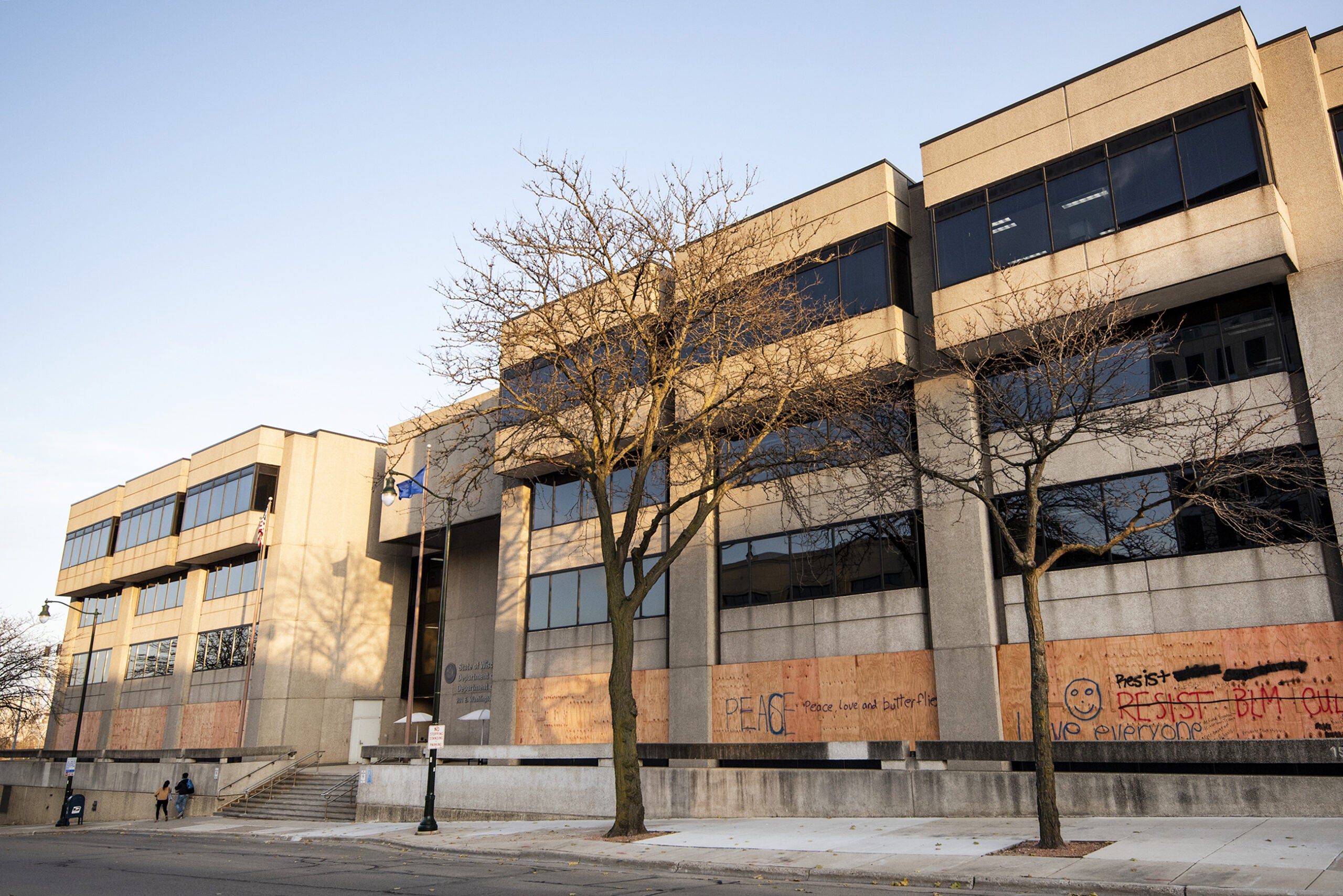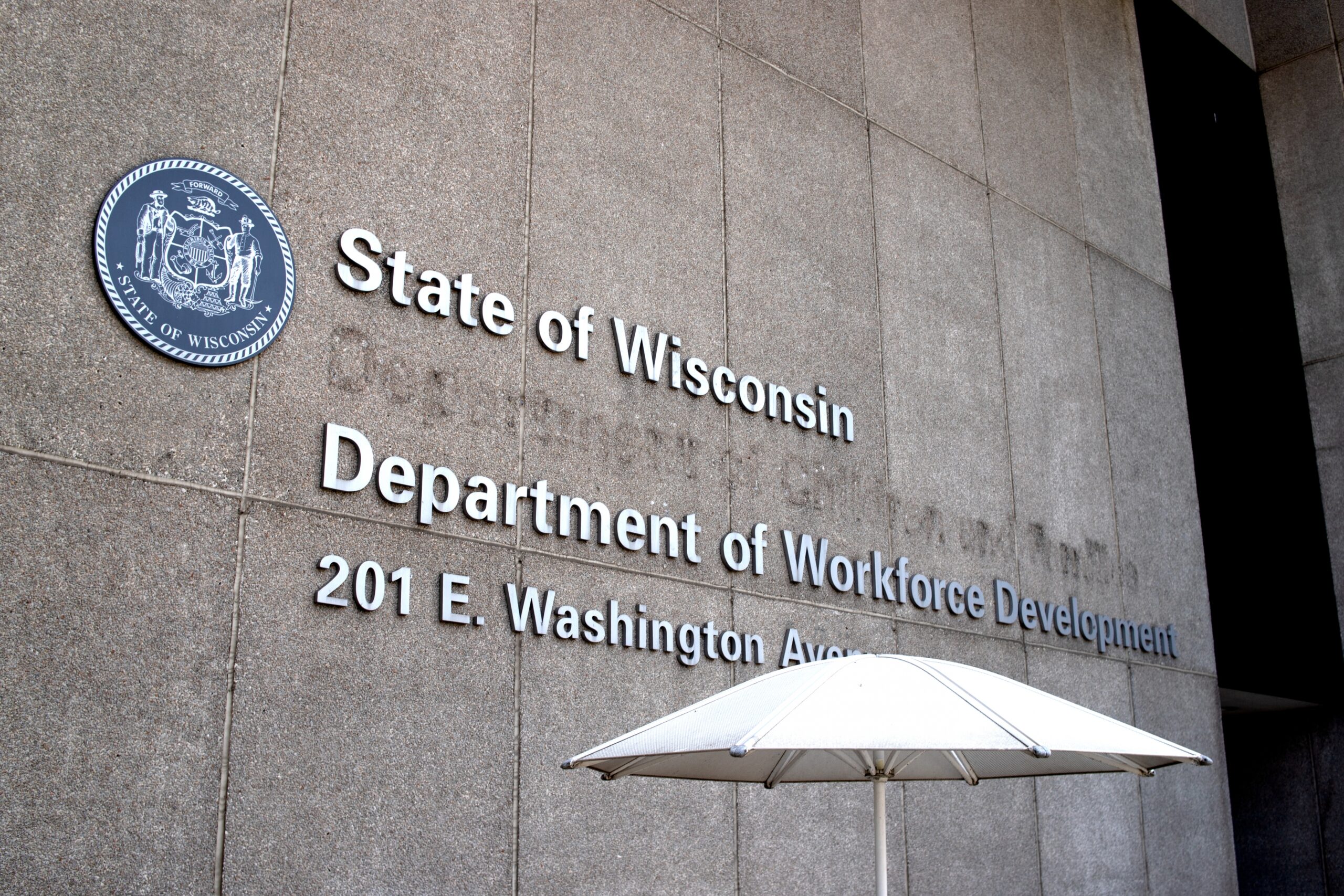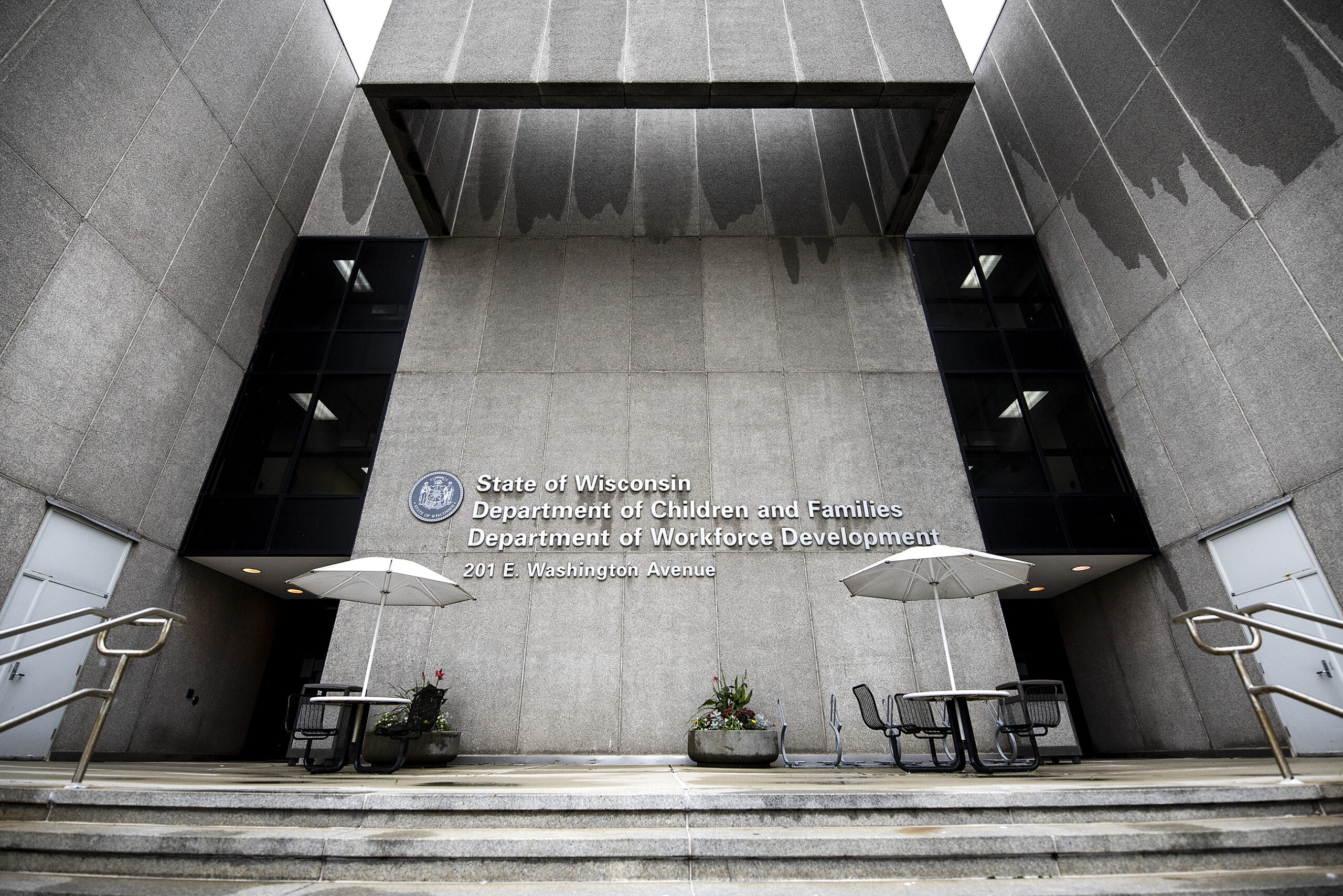The transition director of the state Department of Workforce Development (DWD) said the agency is working to fix the state’s unemployment insurance system to ensure that an unemployment claims backlog “never happens again.”
Amy Pechacek took over at DWD after Gov. Tony Evers fired former Secretary Caleb Frostman in September, citing the long delays out-of-work Wisconsinites were experiencing before receiving unemployment benefits.
Pechacek said last week that she hopes to clear the backlog by the end of December.
News with a little more humanity
WPR’s “Wisconsin Today” newsletter keeps you connected to the state you love without feeling overwhelmed. No paywall. No agenda. No corporate filter.
Unemployment recipients and advocates were skeptical of the new timeline, with some laughing at it and others saying their experience in the unemployment backlog has led to a deep distrust of government’s ability to help in a time of need.
“I certainly understand the sentiment of feeling like, you know, ‘I’m a person here and I haven’t got a timely response in my time of need,’” Pechacek said.
Pechacek pointed to moves she made to increase staffing when she joined the department, in addition to mandating overtime for DWD staffers who work on claims.
But the new timeline is also bolstered by a partnership the agency announced with Google Cloud in mid-October. So far, the company has analyzed years of claims filed with DWD in addition to the backlog to find ways to more efficiently move claims through the process, according to Pechacek.
Going forward, Google will help DWD implement a series of technological fixes that it expects will speed up the amount of time it takes to process claims.
Among them is a project to set up a portal that will allow recipients to upload documents directly to DWD’s website, instead of mailing or faxing documents like they’re required to do now. They’re also looking to build a phone app to make the unemployment process easier for those who can only access the internet via their smartphones, in addition to creating a way to allow some questions from applicants and recipients to be answered via encrypted email in the hope that questions will be answered more quickly and resources at call centers can be freed up, according to Pechacek.
The agency is also in the process of rewriting the application for unemployment insurance, a project that Pechacek thinks will have a “really big impact” on out-of-work Wisconsinites.
“Right now the application is lengthy, it’s got some jargon in it, it’s not entirely clear to everybody who’s reading it how to answer it or what the information is,” she said, adding that the new version will be written in plain-language with the goal of preventing mistakes on the front end that hold up claims processing.
Pechacek said the department has a goal of implementing the projects over the first three months of 2021.
Federal Watchdog Says Some Claims Being Underpaid
On Monday a federal watchdog issued a report that found that more than two dozen state unemployment agencies have likely been underpaying Pandemic Unemployment Assistance (PUA) recipients.
PUA is an unemployment program that was created under the federal CARES Act pandemic stimulus package that provides unemployment insurance to those who are not typically eligible for unemployment, like self-employed workers and independent contractors.
The report from the U.S. Government Accountability Office found that 27 states reported payments to PUA recipients that were near the state’s minimum allowable payment amount, but it didn’t list specific states.
“(U.S. Department of Labor) officials told us that to facilitate implementation of the new program most states decided to initially pay PUA claimants the minimum allowable benefit, rather than calculate benefit amounts based on claimants’ documentation of their prior earnings,” the report said, adding that states have used the same approach in the past under other disaster unemployment programs to get benefits to people more quickly.
Pechecak said she was unaware of any policy at DWD to pay PUA recipients the minimum allowable payment. A department spokesperson said he would look into the question.
The report urged states to calculate what benefits are owed to PUA recipients and pay them quickly, saying related regulations for other disaster unemployment programs state that the payments should be made with “the greatest promptness that is administratively feasible.”
Department of Labor officials do not know how many states have started the process of recalculating benefits and making payments, according to the report.
Wisconsin Public Radio, © Copyright 2025, Board of Regents of the University of Wisconsin System and Wisconsin Educational Communications Board.




